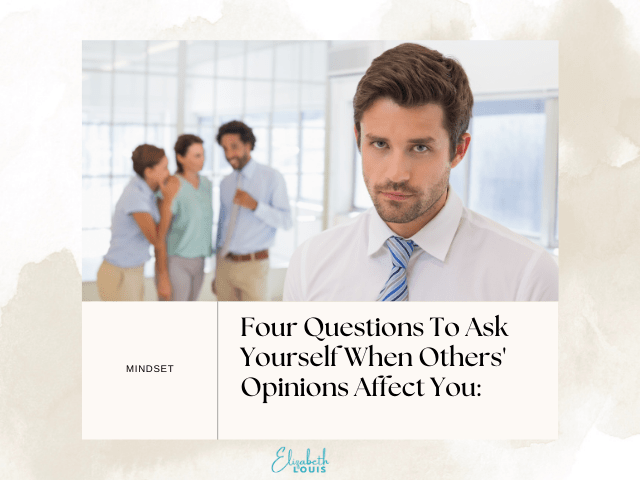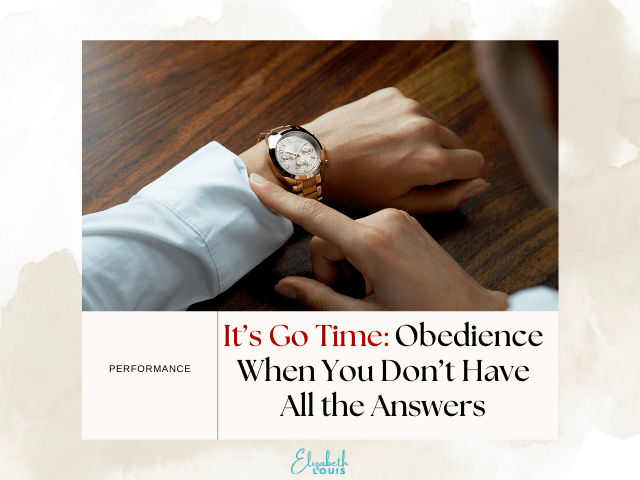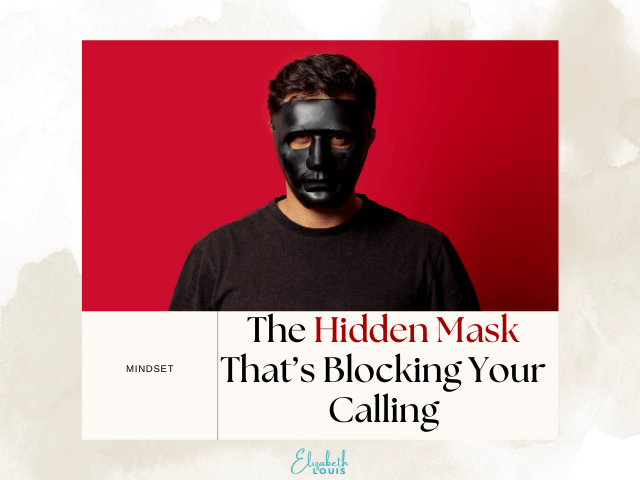
By: Elizabeth Louis
A few years ago, I was picking up many big and heavy items at my local grocery store. These heavy groceries made it difficult for me to navigate and steer the cart easily.
As I turned into the next aisle, I had to quickly dodge a random display at the entry of the aisle. Because of the placement of the display, I couldn’t see it until I turned into the aisle. If I weren’t paying attention, I would have hit it. I’m unsure why grocery stores put displays like this in such inconvenient locations. I quickly moved my cart to avoid hitting the display when a woman suddenly started screaming at me.
She claimed I almost hit her, even though I was 10 feet away. Her rant didn’t stop there. She continued yelling at me for walking too fast in the grocery store. While I admit I walk fast, I am not fast enough to hurt or bulldoze a person. I am not a reckless person.
Stunned by what was happening, I stood there for a second. I started apologizing, but the upset woman wouldn’t stop criticizing me for almost hitting her and walking too fast.
Since her lecture wasn’t ending and she was being quite hostile with her word choice, I decided to walk away. She wasn’t allowing me to speak, nor was she listening to respond but to react.
But, as I moved past her continuing my shopping, I noticed how bothered and upset I was getting.
I was angry but hadn’t done anything wrong. This lady accused me of intentionally trying to hurt her, which made no sense since I didn’t even know her.
Coincidentally, I kept running into her that day at the grocery store. I tried to apologize again, but she continued to berate me. Eventually, I looked at her and said,
“Please stop lecturing me and acting like I was intentionally trying to hurt you. I couldn’t see the display they put at the edge of the aisle entrance, and to avoid hitting it, I had to move quickly. I didn’t hurt you. I’m sorry if I made you feel unsafe. Let’s be clear, you don’t know me or what I’ve experienced in life. Please stop lecturing me. Have a good day.”
Then I left.
Walking towards checkout, I couldn’t help but contemplate what had just happened. I began questioning myself and doubting my own intentions. Thoughts like…Was I rude? Did I handle that well? Was I really at fault? Am I lying to myself? Why did she do that to me? How could I have dealt with that situation better? Am I in the wrong? Did I make her feel bad? Do I really walk that fast?
Have you ever had a similar experience? Has a stranger or boss ever gotten under your skin like this? If so, you know how easy it is for your day to be ruined and for your mind to obsess over the situation. It’s not a great feeling, so I want to share four questions to help you detach and emotionally distance yourself from the case.
I was chasing that white bunny down a dangerous hole when suddenly…
I remembered the 4 questions I use to help me prepare for constructive feedback or help me break free from ruminating. When I don’t use these questions, I notice I ruminate much longer or take subjective thoughts to heart. These questions snapped me out of it!
Question #1.
Is this objectively true or false? Is it a person’s opinion, or can facts back it?
For my situation, I analyzed the woman’s accusations of walking too fast and trying to hit her through this question.
Some people might think I’m weird, but I love grocery shopping. It brings me tremendous joy to pick out items at the store. I’m not sure why I feel this way, but I started taking responsibility for grocery shopping at age 14. Therefore, I factored in my almost two decades of grocery shopping experience and realized this was the first time I had ever been attacked for walking too fast.
After considering the objective and subjective information, I realized that this was merely a person’s opinion with little to no factual basis.
Question #2.
Who said it?
In my situation, it was a stranger—someone I don’t know and will most likely never have a relationship with.
This question is a great question to ask next because it can create a mindset shift. When you realize the person sharing their thoughts is of no value to you, it can allow you to see how much your mind is magnifying the situation.
Remember, magnifying is a negative automatic thought pattern, also known as a thinking trap, that the mind can easily fall into. Some people are prone to this thinking bias, so learning the negative thought patterns you are most susceptible to is essential. Consider taking my free WHAT THINKING TRAP IS LIMITING YOUR PERFORMANCE quiz.
Question #3.
Is the person’s opinion of any value to me?
In my situation, the opinion of the random woman held no value to me. This question allows a person to emotionally detach from the situation by realizing it was a stranger whose thoughts have no value in their life.
However, if my manager, partner, or friend had shared their opinion with me, I would want to consider it. I would want to examine the thoughts shared with me that may have accuracy. For instance, I would want to pay attention to where the opinion shared with me caused an emotional reaction inside of me by asking the following subset questions.
- What part of the opinion shared with me stung? (Sometimes there’s truth to something when it causes an internal sting).
- What parts of the opinion have I heard before?
- What parts am I refusing to believe because I don’t like my manager or getting in trouble? Where’s my pride hindering me from accepting the truth?
It’s also important to remember not to attack your identity if you receive a bad report. Instead, I like to remind myself that this information can help me grow, especially if I’m willing to lean into my vulnerabilities.
Question #4.
Is the opinion a fair or biased critique? Are the beliefs of the individual influencing their perspective?
Regarding the situation at the grocery store, I arrived at a biased critique. Why? Because as someone who has been going to the grocery store multiple times a week for the last two decades, walking at the same pace, I have only been yelled at for walking too fast by one person.
I trust that my mom, boyfriend, and friends would have told me I walked too fast if it were true.
The woman’s own beliefs and rigid rules were influencing her perspective. I can only imagine she was projecting some insecurity on me as well.
However, if I were receiving criticism from a manager, I would want to ask the same question to strip out the person’s biases. This requires tremendous wisdom and discernment because it’s easy to lie to yourself, and that’s something you don’t want to do. One way to prevent lying to yourself is by asking the following subset questions:
- Have I heard this or something similar before?
- Do I like this person?
- Is my dislike for this person causing me to disagree with the insights?
- How does my boss treat my coworker who does something similar?
- Have I noticed my boss treating my coworkers differently from one another? Does he/she have favorites?
- What parts of the feedback do I agree with, need to consider, and disagree with?
The questions listed above are helpful to reference when facing criticism, someone’s displeasure, or pressure to conform to their methods.



